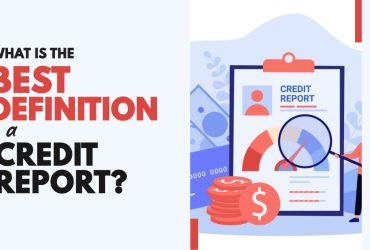What does 90+ late mean in a credit report? (UPDATED 2023)
by Almas Tariq
October 10, 2019
07:04 PM

A credit report can be a maze of terms and labels, therefore leaving clients puzzled. One such label is ’90+ Late,’ signifying a critical aspect of credit reporting. In this guide, we demystify the meaning of ’90+ Late’ and its implications, providing clarity in your credit journey, for instance. While looking at a credit report, a client finds that it reads 90+ late. Therefore this descriptor references to reporting of late payments and derogatory information.
-
What does it mean to be 90+ late?
Being ’90+ on your credit report indicates that a lender has reported that you haven’t paid your credit obligation for 90 days or more past the due date. It’s a serious indicator of payment delinquency and can have adverse effects on your credit score. This label may also encompass reporting codes for 120, 150, and 180 days past due on an account, and it often includes accounts that the lender has charged off or on which there is a report about serious derogatory information. In essence, it’s a red flag for financial difficulties and can significantly impact your creditworthiness.
-
How can you prevent this?
To avoid the ’90+ late’ status on your credit report and preserve a positive credit score, consider these proactive measures:
-
- Set Payment Reminders: Use reminders or payment apps to stay on top of due dates.
- Automate Payments: Many creditors offer automatic payment options for added convenience.
- Budget Wisely: Develop a monthly budget to manage your finances effectively, ensuring you allocate funds for bills and debt payments.
- Build an Emergency Fund: Create a financial safety net to cover unexpected expenses or income disruptions.
- Negotiate with Creditors: In times of financial hardship, communicate with creditors to explore alternative payment arrangements.
- Prioritize Essential Expenses: Allocate funds for crucial obligations like housing, utilities, and groceries before discretionary spending.
- Monitor Your Credit Report: Regularly check your credit report for errors and inaccuracies, addressing them promptly.
- Educate Yourself: Gain financial knowledge to make informed decisions about your financial health.
- Consult Financial Experts: Seek guidance from financial counselors or credit counseling agencies when facing financial challenges.
- Prepare for Emergencies: Develop a plan to address unexpected financial crises, including insurance coverage, savings, or access to credit lines.
-
Conclusion
Understanding ’90+ Late’ is pivotal for managing your credit effectively. It reveals a lender’s report of serious payment delinquency. For more valuable insights and resources to navigate the complex world of credit repair, explore ScoreCEO’s blog. Don’t forget to subscribe to our podcast, ScoreWay: The Only Way, available on Anchor, Apple Podcasts, and Spotify.
Table of Contents
Explore More Insights
Dive deeper into a wealth of knowledge. Discover a multitude of articles covering diverse topics, expert perspectives, and the latest trends. Feed your curiosity and expand your understanding.



